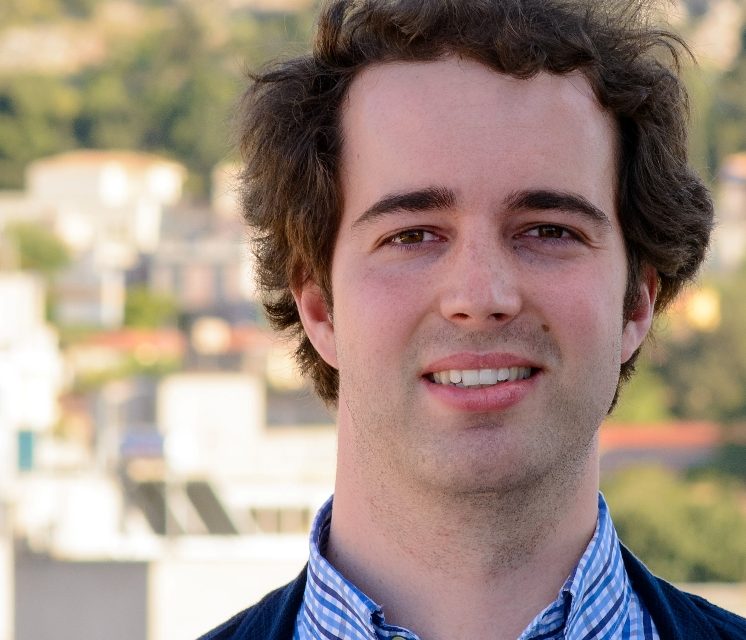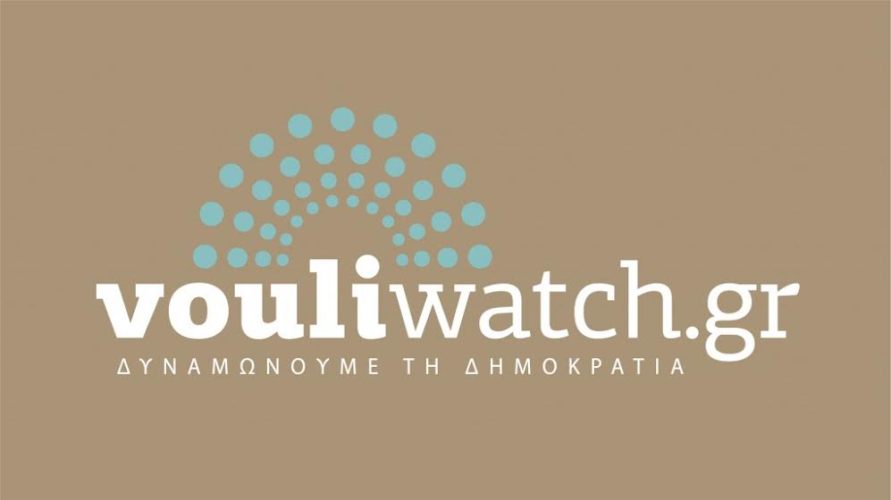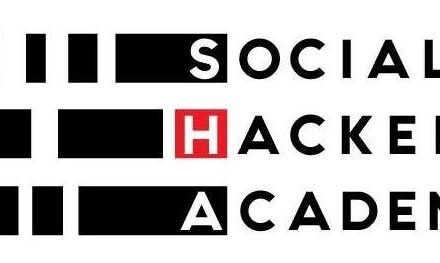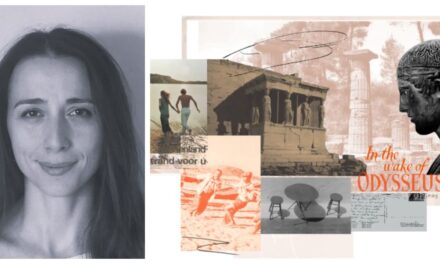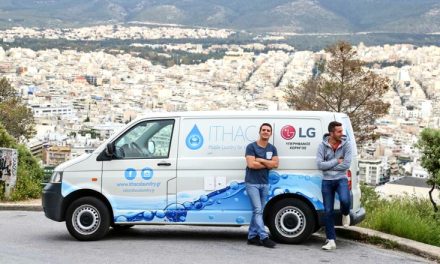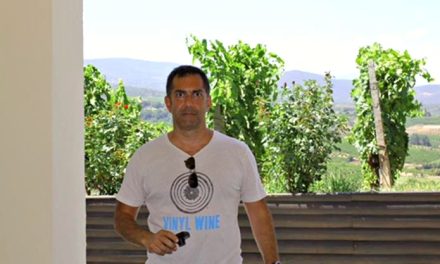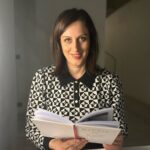Vouliwatch is a digital platform that engages Greek citizens with legislative politics and grants them with the opportunity to communicate, evaluate and hold elected representatives in the Greek and the European Parliament (MPs & MEPs) accountable. Similar successful initiatives (“Parliamentwatch”) exist in countries like Ireland, Luxemburg, Tunisia, Germany, France and Austria.
Antonis Schwarz is Vouliwatch’s co-founder and a community administrator for the ParliamentWatch Network, an international network of parliamentary monitoring organizations. He is of Greek-German origin and studied Politics (BA Kings College London) and Business (MA IE University Madrid). In the past, he has worked at Ashoka, a global organization supporting social entrepreneurs, Bonventure, the first German venture philanthropy fund, as well as Yunus Social Business, a global social business accelerator. Beyond his engagement for more citizen participation and transparency, he is also interested in scaling social/impact investing to Greece to help fight the crisis.
Antonis Schwarz spoke with Greek News Agenda* about the Vouliwatch platform, social entrepreneurship, the Greek civil society, the need for transparency and strengthening the voice of the citizens as well as the need for a new narrative “based on innovation, solidarity, openness, kindness and a love for Greece.”
What was the main reasoning behind creating Vouliwatch? What are the demographics of its users and which features of the platform are they most interested in?
The idea of starting Vouliwatch was born as I was doing my Masters in Madrid and was reading the news about the deteriorating economic and political situation in Greece. The feeling grew inside me that it is my civic duty to make an extra-ordinary effort and do my small part in helping get rid of this crisis, as the situation in Greece seemed to reach critical tipping points of social unrest. My idea was to create a non-partisan platform and strengthen the voice of the citizen in politics. In Greece, as in the rest of Europe, citizens have very limited means of actively intervening in politics beyond their ballot in election times and are wholly dependent on political parties for law-making. In short: I believe a democracy in the 21st century requires more direct democracy, the need of which is visible not least in the frustration that citizens across Europe feel about mainstream politics.
Regarding the demographics of Vouliwatch’s users, at least half of our users are between the ages of 18-35, yet every third visitor is older than 35. Our users are mostly interested in reading about what is going on inside parliament through our news section (“observatory” or «παρατηρητήριο» in Greek) that is updated daily by our parliamentary correspondent. Also popular is seeing which bills recently got voted in parliament, as well as of course asking questions to MPs and MEPs.
You are keeping an eye on the MPs; do they keep an eye on you? Are there examples of citizens’ ideas that have made their way from Vouliwatch to the Parliament?
In the beginning we experienced quite a dose of suspicion from parliamentarians, yet the suspicion has decreased over time, not least because MPs have realized the added benefit of Vouliwatch, which is to show that they care about citizens’ concerns and even attract new voters. Today we receive emails of MPs congratulating us on our efforts, which gives me great optimism that there is a bright future ahead of us. We want to help make parliament more transparent and MPs to repair their broken public image and we can only do this together with our representatives in parliament.
There have been some examples where MPs have embraced citizen questions posted on Vouliwatch and used them as a basis for an official request to the respective ministry. One example concerned a question by the NGO Emfasis Foundation that asked a question regarding the situation of homeless people. Homeless people had severe difficulties accessing the public health system in case their ID cards have expired, since in order to renew an ID card a permanent address is needed.
After two years of online existence, have you reconsidered, in any way, your prior assumptions about the Greek civil society and the culture of openness in the country?
Greek civil society is experiencing a strong boost due to the ongoing economic and political crisis but this boost cannot be capitalized because of several reasons, one of the most important reasons being that scandals are part of daily life in Greece – You read about it almost every day in the newspaper. Hence the pressure that civil society can exert is sometimes limited or at least of very short duration. At the same time, our state is so incapable and badly organized that you do not know where to begin to start pressuring. And then you have to fight against interest groups… This frustration is part of daily life, you learn to live with it and do the best you can.
The situation regarding transparency is also worse than I had anticipated and also I have seen that there is a lot of window dressing going on. Great transparency laws get voted, which are then not implemented. Regarding the necessary reforms that this country needs, I would like to state here that the government should make it a priority to ban the youth wings of political parties at universities. The influence the youth political parties have in academia is unheard of in the developed world. But probably this is an ambitious wish of mine, which I will not see implemented in the near future.
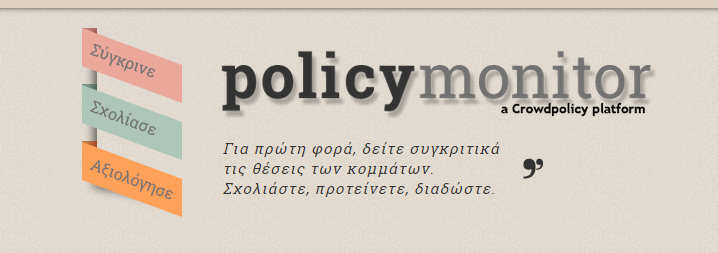 How could a young person establish a career in social entrepreneurship? What are the biggest challenges she/he will have to face in Greece? In which ways could the institutional framework evolve so that it could encourage citizen initiatives and support the sustainability of social projects?
How could a young person establish a career in social entrepreneurship? What are the biggest challenges she/he will have to face in Greece? In which ways could the institutional framework evolve so that it could encourage citizen initiatives and support the sustainability of social projects?
Aristotle once said “where your talents and the needs of the world cross; there lies your vocation.” – I think therefore a good starting point is to discover what you are really passionate about, see where your talents are and where you realistically can make a difference. Then you can get engaged in the social entrepreneurship eco-system in Greece, for example by getting in touch with the Impact HUB or Ashoka Greece and get feedback on your idea. Generally, speaking the biggest challenge is finding funds for your social endeavor, since foundations in Greece target mainly established players, crowdfunding is not working and the fact that Greece has the lowest percentages of people donating money (in contrast to in-kind donations where Greece does comparatively well).
Regarding the institutional framework, there is great mistrust against NGOs and the nonprofit sector, because of corruption scandals where government funds were awarded to NGOs that belonged to cronies. This in turn severely damaged the public image of the whole nonprofit sector. What we therefore need is an effective regulation of the Greek nonprofit sector, which is currently quite unregulated, in order to re-establish trust into the NGO sector. The regulation can be drafted on best practices from other EU or OECD countries and must involve more accountability. I have heard of examples where clubs where registered as an NGO for years. This is not acceptable. Also, I would also encourage the Greek state to look at the concept of social impact bonds to accelerate social innovation and investment into social enterprises. Tax deductions to NGOs could be another idea to encourage new initiatives.
More than six years into the crisis, is civil society mature enough to push for a new narrative for Greece or is it still mainly focused on trying to alleviate the effects of the crisis?
I think the latter is still the case but in trying to alleviate the effects of the crisis we are creating the new narrative based on innovation, solidarity, openness, kindness and a love for Greece. I think most Greeks reading this will agree that we could be the greatest country on this planet without a doubt if we took care of our pathologies. The Greek people are creative, witty, funny; we have great weather, an ancient history and we value friendship and family. What more do you need? If Greek civil society is growing stronger, we need to work together in order to make politics listen to our concerns. Only together we can achieve something.
What are Vouliwatch’s goals for the near future? Are you developing any ideas for new social projects?
In fall we received an EU grant to help set up a Vouliwatch organization in Cyprus. Furthermore we are working on aggregating parliament data to be able to compare the productiveness of parliamentary periods. As for me, I have many ideas but they are all top secret… at least for the moment.
*Interview by Lina Syriopoulou
TAGS: INNOVATION | INTERNATIONAL RELATIONS

